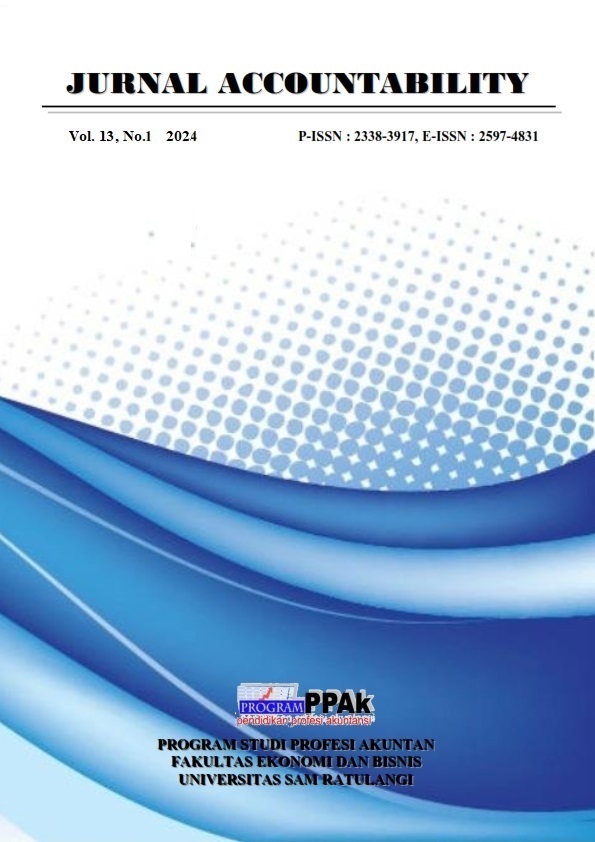The Effect of Tax Incentives and Cash Flow on Accounting Conservatism (Case Study of a Food and Beverage Sub-Sector Manufacturing Company Listed on the Indonesia Stock Exchange in 2020-2022)
Abstract
Every company is required to be careful in preparing financial reports to avoid fraud. However, there are still many companies that are not careful in preparing their financial reports, so many cases of financial report manipulation occur. The study aims to examine the effect of tax incentives and cash flow on accounting conservatism in food and beverage sub-sector manufacturing companies listed on the Indonesia Stock Exchange in 2020-2022. The method used in this study is quantitative method. The population in this research is food and beverage sub-sector manufacturing companies listed on the Indonesia Stock Exchange for 2020-2022. The purposive sampling method is a method used to determine the number of samples to be studied based on certain criteria, so that there are 20 companies that meet the criteria as needed by the author. Panel data regression analysis is used as a data analysis technique with EViews 12 software as a research tool. The research results show that (1) tax incentives have a negative and significant effect on accounting conservatism and (2) cash flow has a positive and significant effect on accounting conservatism.
Keywords: Tax, Incentives, Cash Flow, Accounting, Conservatism
Downloads
Published
Issue
Section
License
Copyright (c) 2024 Olifia Tala, Rocyke Pangkey, Valencia Tumiwa

This work is licensed under a Creative Commons Attribution-NonCommercial 4.0 International License.
The articles published in Jurnal Accountability are licensed under Creative Commons Attribution-NonCommercial 4.0 International with authors as copyright holders.
Â

This work is licensed under a Creative Commons Attribution-NonCommercial 4.0 International License.
Â
- Share — copy and redistribute the material in any medium or format.
- Adapt — remix, transform, and build upon the material.
- The licensor cannot revoke these freedoms as long as you follow the license terms.
- Attribution — You must give appropriate credit, provide a link to the license, and indicate if changes were made. You may do so in any reasonable manner, but not in any way that suggests the licensor endorses you or your use.
- NonCommercial — You may not use the material for commercial purposes.
- No additional restrictions — You may not apply legal terms or technological measures that legally restrict others from doing anything the license permits.
- You do not have to comply with the license for elements of the material in the public domain or where your use is permitted by an applicable exception or limitation.
- No warranties are given. The license may not give you all of the permissions necessary for your intended use. For example, other rights such as publicity, privacy, or moral rights may limit how you use the material.


